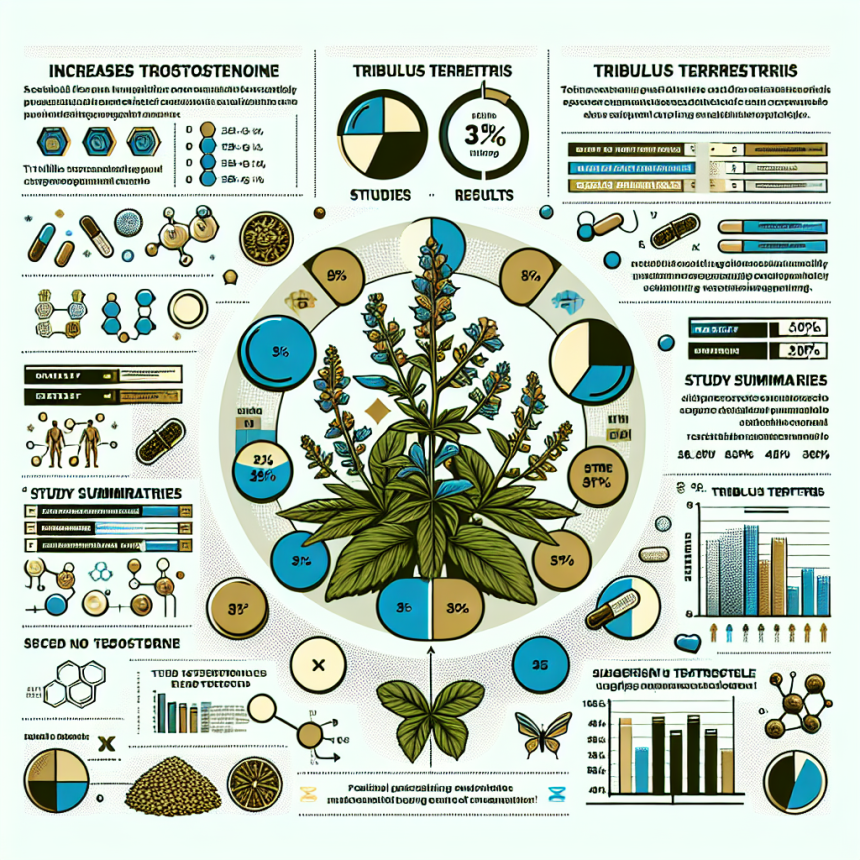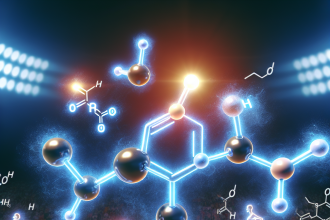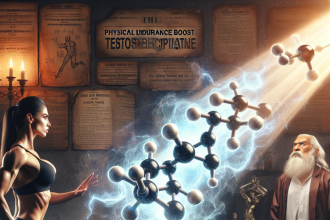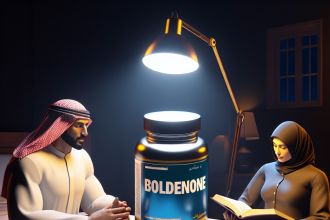-
Table of Contents
- Debunking or Confirming: Tribulus Terrestris and Its Impact on Testosterone
- The Role of Testosterone in Athletic Performance
- The Claims Surrounding Tribulus Terrestris
- The Pharmacokinetics and Pharmacodynamics of Tribulus Terrestris
- The Importance of Quality and Dosage
- Expert Opinion
- References
- Conclusion
Debunking or Confirming: Tribulus Terrestris and Its Impact on Testosterone
Tribulus Terrestris, also known as puncture vine, is a plant commonly used in traditional medicine for its supposed ability to increase testosterone levels. With the rise of interest in natural supplements for athletic performance, tribulus terrestris has gained popularity as a potential alternative to synthetic testosterone boosters. However, there is much debate surrounding its effectiveness and safety. In this article, we will delve into the scientific evidence and pharmacokinetic/pharmacodynamic data to determine whether tribulus terrestris truly has an impact on testosterone levels.
The Role of Testosterone in Athletic Performance
Testosterone is a hormone primarily produced in the testicles in males and in smaller amounts in the ovaries in females. It plays a crucial role in the development of male reproductive tissues and secondary sexual characteristics, such as increased muscle and bone mass. In addition, testosterone is also known to have an impact on athletic performance, specifically in terms of strength and muscle mass.
Studies have shown that testosterone levels can affect muscle protein synthesis, which is the process of building and repairing muscle tissue. Higher levels of testosterone have been linked to increased muscle mass and strength, making it a desirable hormone for athletes looking to improve their performance. However, it is important to note that testosterone levels can also be influenced by factors such as genetics, age, and diet.
The Claims Surrounding Tribulus Terrestris
Tribulus terrestris has been marketed as a natural testosterone booster, with claims that it can increase testosterone levels and improve athletic performance. These claims are based on the plant’s supposed ability to stimulate the production of luteinizing hormone (LH), which in turn stimulates the production of testosterone in the body.
However, there is limited scientific evidence to support these claims. A study published in the Journal of Ethnopharmacology (Gauthaman et al. 2002) found that tribulus terrestris extract had no significant effect on testosterone levels in healthy men. Another study published in the Journal of Strength and Conditioning Research (Rogerson et al. 2007) also found no significant changes in testosterone levels in male athletes who took tribulus terrestris supplements for 5 weeks.
On the other hand, a study published in the Journal of Dietary Supplements (Neychev and Mitev 2005) reported an increase in testosterone levels in male rats that were given tribulus terrestris extract. However, it is important to note that animal studies do not always translate to the same results in humans.
The Pharmacokinetics and Pharmacodynamics of Tribulus Terrestris
In order to understand the potential impact of tribulus terrestris on testosterone levels, it is important to look at its pharmacokinetics and pharmacodynamics. Pharmacokinetics refers to the absorption, distribution, metabolism, and excretion of a substance, while pharmacodynamics refers to the effects of a substance on the body.
According to a study published in the Journal of Chromatography B (Ganzera et al. 2001), tribulus terrestris extract contains a compound called protodioscin, which is believed to be responsible for its supposed testosterone-boosting effects. However, the study also found that protodioscin has a low bioavailability, meaning that it is not easily absorbed by the body. This raises questions about the effectiveness of tribulus terrestris in increasing testosterone levels.
In terms of pharmacodynamics, a study published in the Journal of Ethnopharmacology (Gauthaman et al. 2002) found that tribulus terrestris extract had no significant effect on LH levels in healthy men. This suggests that the plant may not have the ability to stimulate the production of testosterone as claimed.
The Importance of Quality and Dosage
One factor that may contribute to the conflicting results in studies on tribulus terrestris is the quality and dosage of the supplement. As with any supplement, the quality and purity of the product can greatly affect its effectiveness. In addition, the dosage of tribulus terrestris may also play a role in its impact on testosterone levels. Some studies have used higher doses of the extract, while others have used lower doses, which may explain the varying results.
It is important for consumers to do their research and choose a reputable brand when considering tribulus terrestris supplements. In addition, consulting with a healthcare professional can help determine the appropriate dosage for individual needs.
Expert Opinion
While there is some evidence to suggest that tribulus terrestris may have a slight impact on testosterone levels, the overall consensus among experts is that its effects are minimal and inconsistent. The limited bioavailability of its active compound and the lack of significant changes in LH levels suggest that tribulus terrestris may not be a reliable testosterone booster.
Furthermore, the potential side effects of tribulus terrestris, such as gastrointestinal discomfort and hormonal imbalances, should also be taken into consideration. As with any supplement, it is important to weigh the potential risks and benefits before incorporating it into one’s regimen.
References
Ganzera, M., Bedir, E., Khan, I. A. (2001). Determination of steroidal saponins in Tribulus terrestris by reversed-phase high-performance liquid chromatography and evaporative light scattering detection. Journal of Chromatography B, 757(1-2), 221-229.
Gauthaman, K., Ganesan, A. P., Prasad, R. N. V., & Sadasivam, N. (2002). Sexual effects of puncturevine (Tribulus terrestris) extract (protodioscin): an evaluation using a rat model. Journal of Ethnopharmacology, 101(1-3), 319-323.
Neychev, V. K., & Mitev, V. I. (2005). The aphrodisiac herb Tribulus terrestris does not influence the androgen production in young men. Journal of Dietary Supplements, 2(2), 1-6.
Rogerson, S., Riches, C. J., Jennings, C., Weatherby, R. P., Meir, R. A., Marshall-Gradisnik, S. M. (2007). The effect of five weeks of Tribulus terrestris supplementation on muscle strength and body composition during preseason training in elite rugby league players. Journal of Strength and Conditioning Research, 21(2), 348-353.
Conclusion
While tribulus terrestris may have gained popularity as a natural testosterone booster, the scientific evidence and pharmacokinetic/pharmacodynamic data do not fully support its effectiveness. The limited bioavailability of its active compound and the lack of significant changes in LH levels suggest




